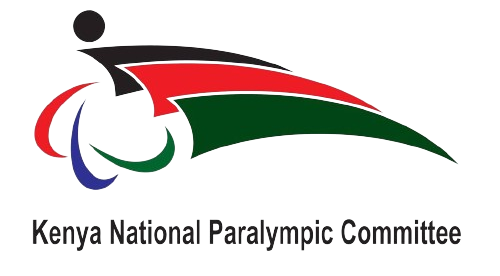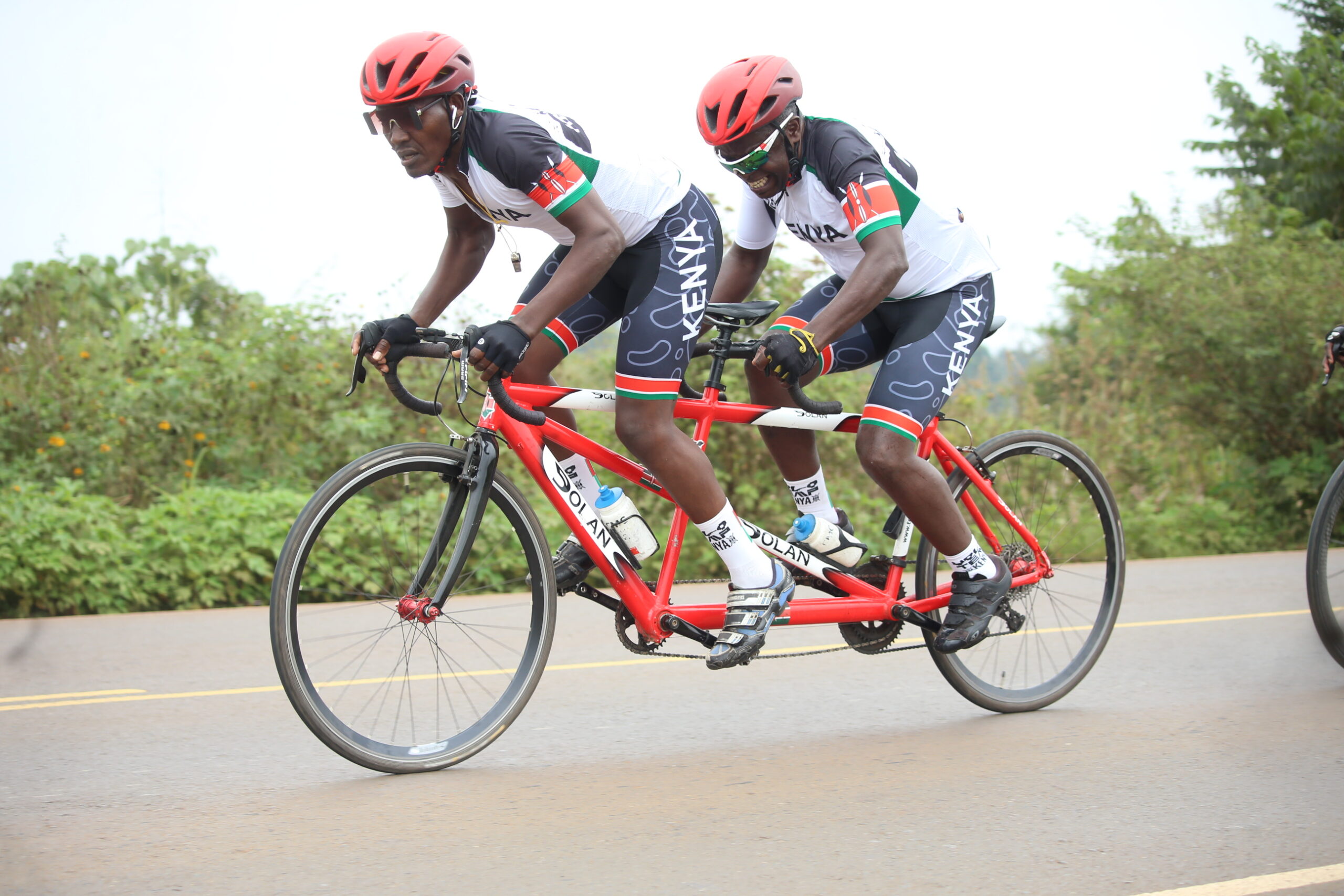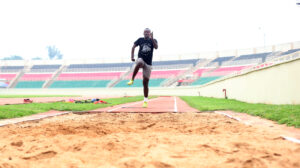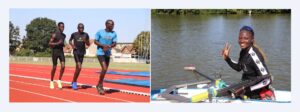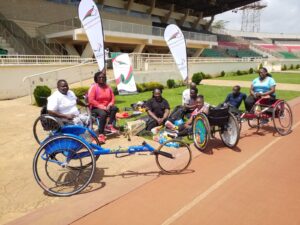Kenya’s para-cyclists are counting double blessings after they settled down in Compiegne, France for training ahead of the Paris Paralympic Games scheduled for August 28 to September 8 in in the French capital.
History will be made when Africa champions Dedan Ireri Maina and Kennedy Ogada compete in both track (Velodrome-indoor track) and road racing at the Paris Summer Games.
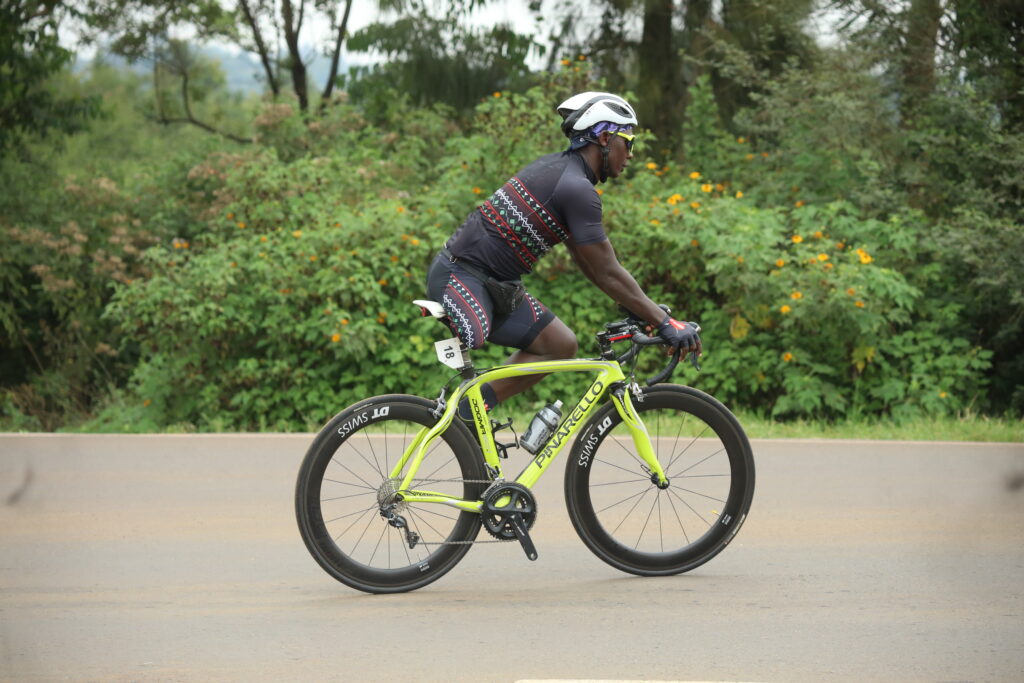
Kenya’s para cyclists will be participating at the Paralympics for the first time.
Initially, Ireri made history as the first Kenyan to win four gold medals at the Confederation of Africa Cycling (CAC) Para-cycling Championships held June 26 to 27 in Cairo, Egypt.
He won both the time trial and the competition in road racing and track (Velodrome) and road racing (C2) respectively for the four gold medals but was initially given the Paralympics nod in road racing.
Ireri, a former street urchin and beggar in Nairobi, has been given an opportunity to compete in track in Paris hence a shot at more medals.
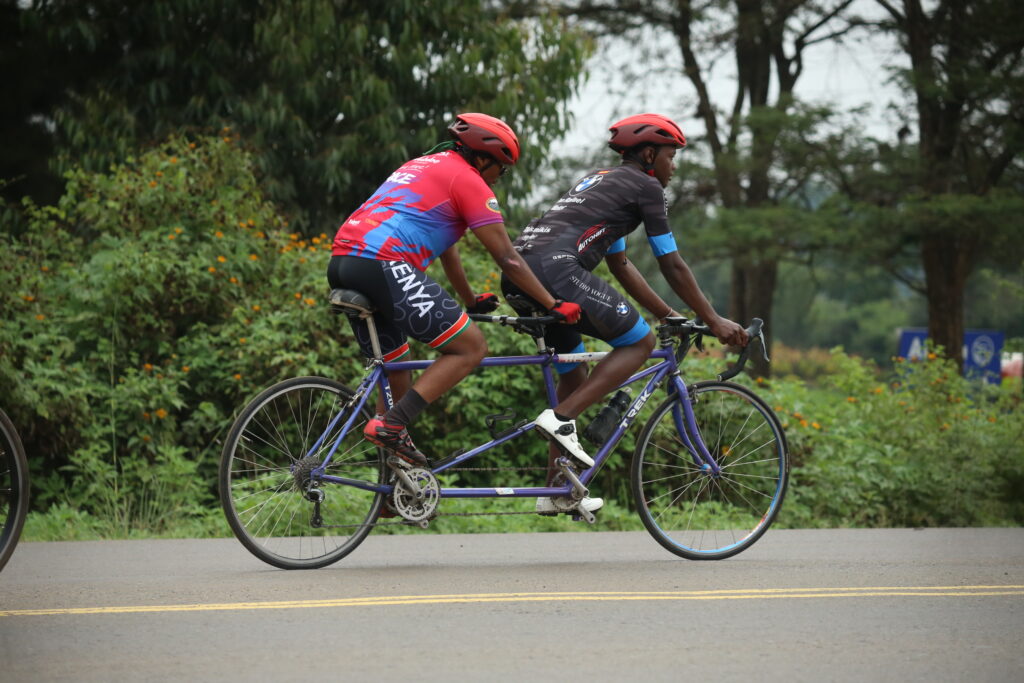
Odaga had only qualified in tandem track cycling (double bike) category B1.
Ogada, piloted by Peter Njoki qualified during the 2022 Birmingham Commonwealth Games where he finished sixth 1:20.172 minutes in an event won by Neil Fachie (Lewis Stewart-pilot) in a Championship record time of 59.938 seconds.
Ogada with Benson Njuguna as pilot won gold in time trials tandem road cycling (double bike) category B1 in 39:16 minutes but settled for silver in road racing in 57:55 minutes, losing to Ibrahim Ettesh (Mohamed Emara) of Egypt.
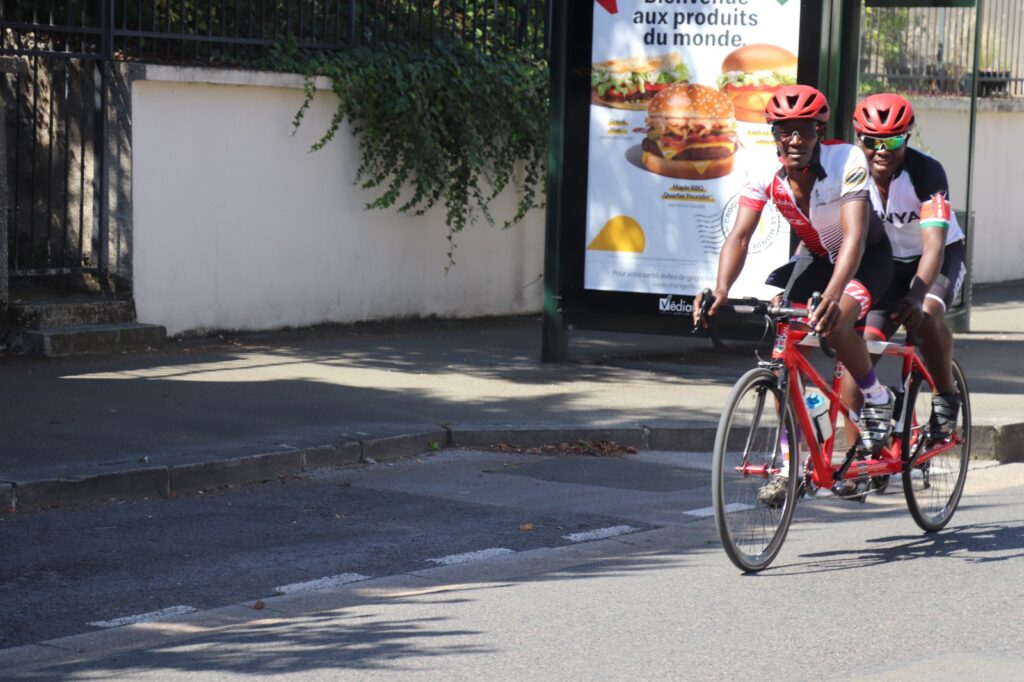
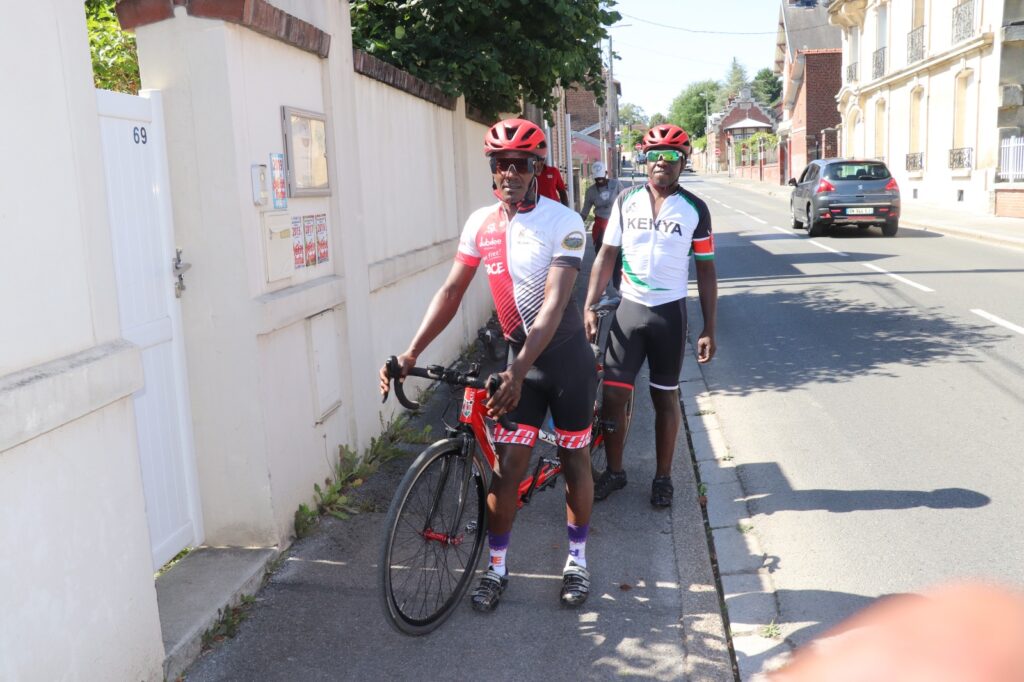
That performance saw him punch his second ticket for the Paris Games.
The 52-year-old Odaga, who got blind 15 years ago, and Ireri, 44, who had his right leg amputated above the knee at the age of nine after a road accident, have been training in Muranga for the last three weeks.
“We have trained well, in Kenya we used to cover 130 kilometres every Sunday during our endurance exercise, so I can confidently say that we are well prepared for the Games and we are going for nothing less than a gold medal,” said Ogada.
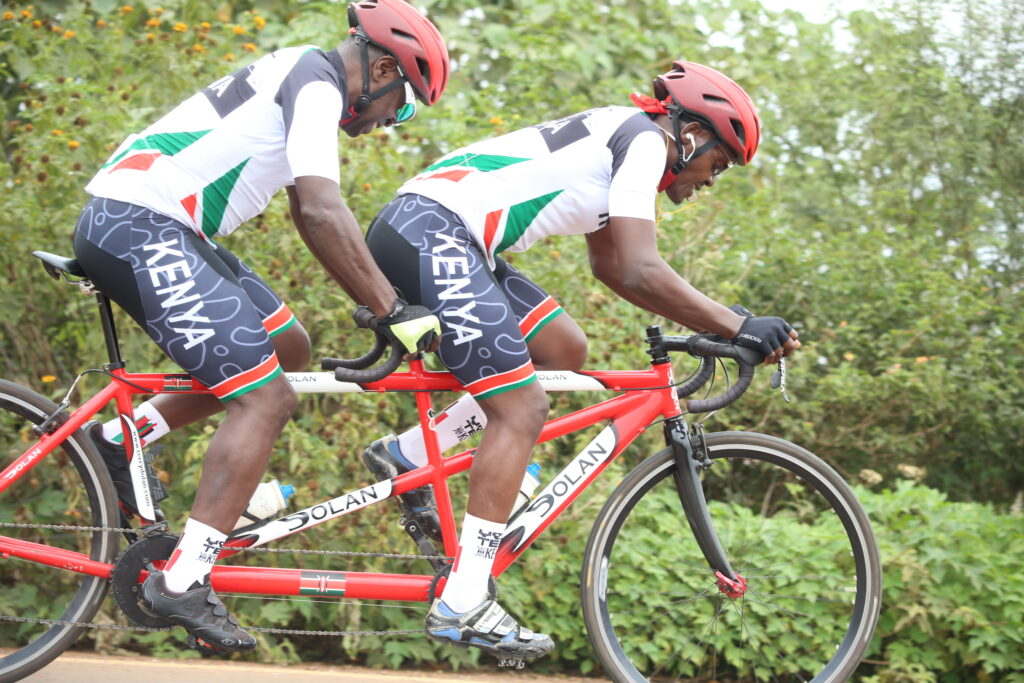
Well, Ireri, a former approved school escapee, street urchin, snatcher and office messenger, and now a hawker, is destined to dine with some of the finest para athletes in the world.
“Qualifying for the Olympics was quite phenomenal, heartwarming and something that isn’t common,” said Ireri. “I think God gives some challenges to prepare you for greatness and here I am heading for Paralympics.”
Ireri used some of the proceeds from compensation after he was hit by a bus and his leg was amputated by his bicycle.
“I bought it for fun but meeting a para-cyclist Ibrahim Wafula, who had competed for Kenya changed everything in 2004. He had one leg like me,” said Ireri, who embraced the sport to compete.
Ireri qualified for the first time for the 2008 Beijing Paralympics after performing well at the 2007 World Para Cycling Championships in Colombia but communication breakdown saw him miss out.
Ireri said that more time in training in camp with support from the Kenya National Paralympic Committee and Kenya Cycling Federation has helped him improve greatly.
“I wasn’t used to hill training but I have embraced it to firm my endurance. My speed too has improved. I really want to be the first para cyclist to medal at the Paralympics,” explained Ireri, the father of four, who hails from Kangema, Muranga County.
It’s Ireri’s dream to bring more disabled athletes not only to para cycling but para sports.
“We have enormous talent in institutions that deal with disability but they lack the opportunities,” said Ireri, adding the weather has been friendly for the five days they have been in Compiegne. “The roads are equally good.”
Ogada said that he had improved greatly in terms of endurance and mileage and looks better than when he competed at the Commonwealth in 2022 and at the Africa event in Cairo.
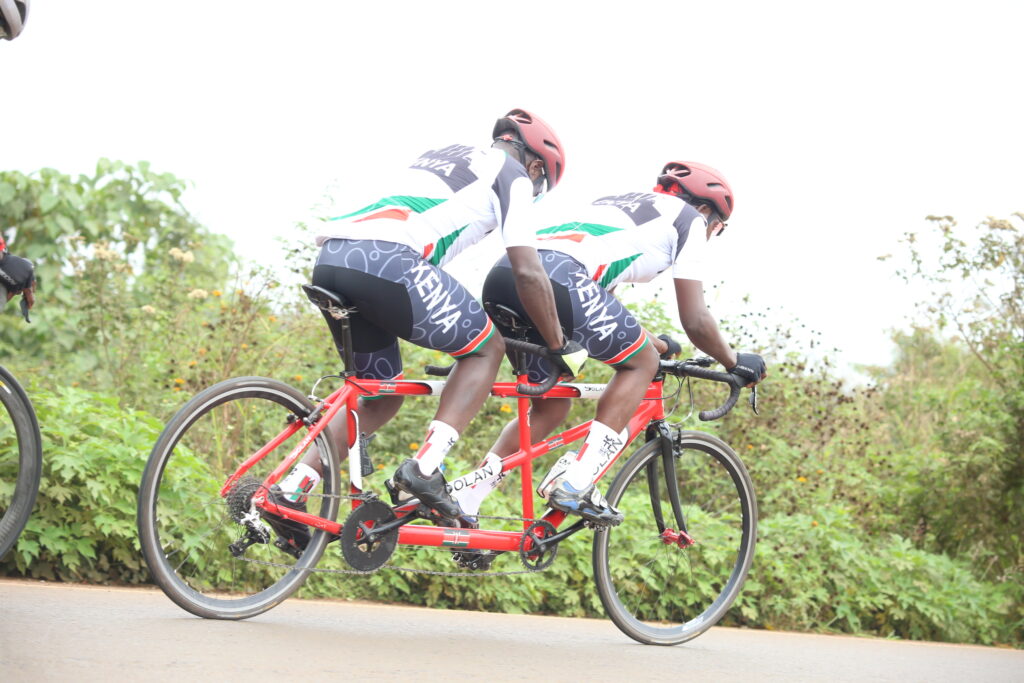
“The weather here in Compiegne is good. The roads are good and training has been smooth. I am here to compete and not just add to the numbers. We are aiming for a medal bracket performance,” said Ogada, the father of three, who is thankful to God for the opportunity.
“I had competed locally for a decade before I got blind and I never got the opportunity to represent Kenya. God works in mysterious ways. It’s a great honour to fly the country’s flag,” said Ogada, who wants the ministry of sports to help the disabled athletes acquire good equipment for competition.
“I know we don’t have velodrome facilities in the country but that can be compensated with support from the government since we are short financially,” informed Ogada.
Ogada’s pilot(guide) Benson Mwaniki describes him as an amazing man, who overcame the challenges of going blind at his most productive age to represent Kenya.
“I knew Ogada before he fell blind. He thought the world had collapsed on him when he got blind but managed to pull through,” said Mwaniki, adding that Ogada has proved that disability is not inability.
